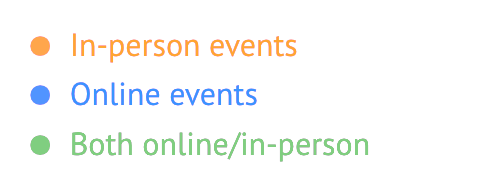Title: Building Accessible Telehealth for Patients with Disabilities from the Ground Up (Part 2: Monday Oct 26, 11 a.m. – 12 noon PT)
Description:
Didactic:
Federal Legal Considerations for Accessible Telehealth for Individuals With Disabilities
Alyse Bass, JD – U.S. Department of Justice, Civil Rights Division, Disability Rights Section
Clarette Yen, JD – U.S. Department of Justice, Civil Rights Division, Disability Rights Section
Presenters from the U.S. Department of Justice, Civil Rights Division, Disability Rights Section will provide attendees an understanding of health care providers and organizations’ obligations under the Americans with Disabilities Act (ADA) and Section 504. Their presentation will help providers understand that legal obligations apply regardless of whether services are provided in person or virtually.
Case Study #1:
COVID-19’s Impact on Deaf and Hard of Hearing Patients- Identify the Barriers and Solutions to Address Them
Michael McKee, MD, MPH – The University of Michigan, Michigan Medicine, Department of Family Medicine
The Deaf Health Clinic, housed in the Department of Family Medicine, cares for over 150 Deaf signers and a much larger population of those who are hard of hearing. Mandatory virtual care for everyone created significant communication challenges for the 17% of US adults who are Deaf and hard of hearing (DHH). To address these challenges, Michigan Medicine/Department of Family Medicine in collaboration with the interpreter department, created a variety of protocols for both in person and telehealth appointments for DHH patients.
Case Study #2:
Increasing Reach and Accessibility of Telehealth Services for Children with Disabilities during COVID-19 and Beyond
Jason Jent, PhD – The University of Miami Miller School of Medicine, Mailman Center for Child Development
The Mailman Center for Child Development provides services to over 15,000 children per year through a variety of assessment, prevention, and intervention services designed to address concerns of individuals with developmental disabilities and children with special health care needs. Within this case study, telehealth services will be highlighted as an effective mechanism for increasing reach of parenting interventions, neurodevelopmental evaluations, assistive services and technology use, and hearing programs for children with disabilities. |




